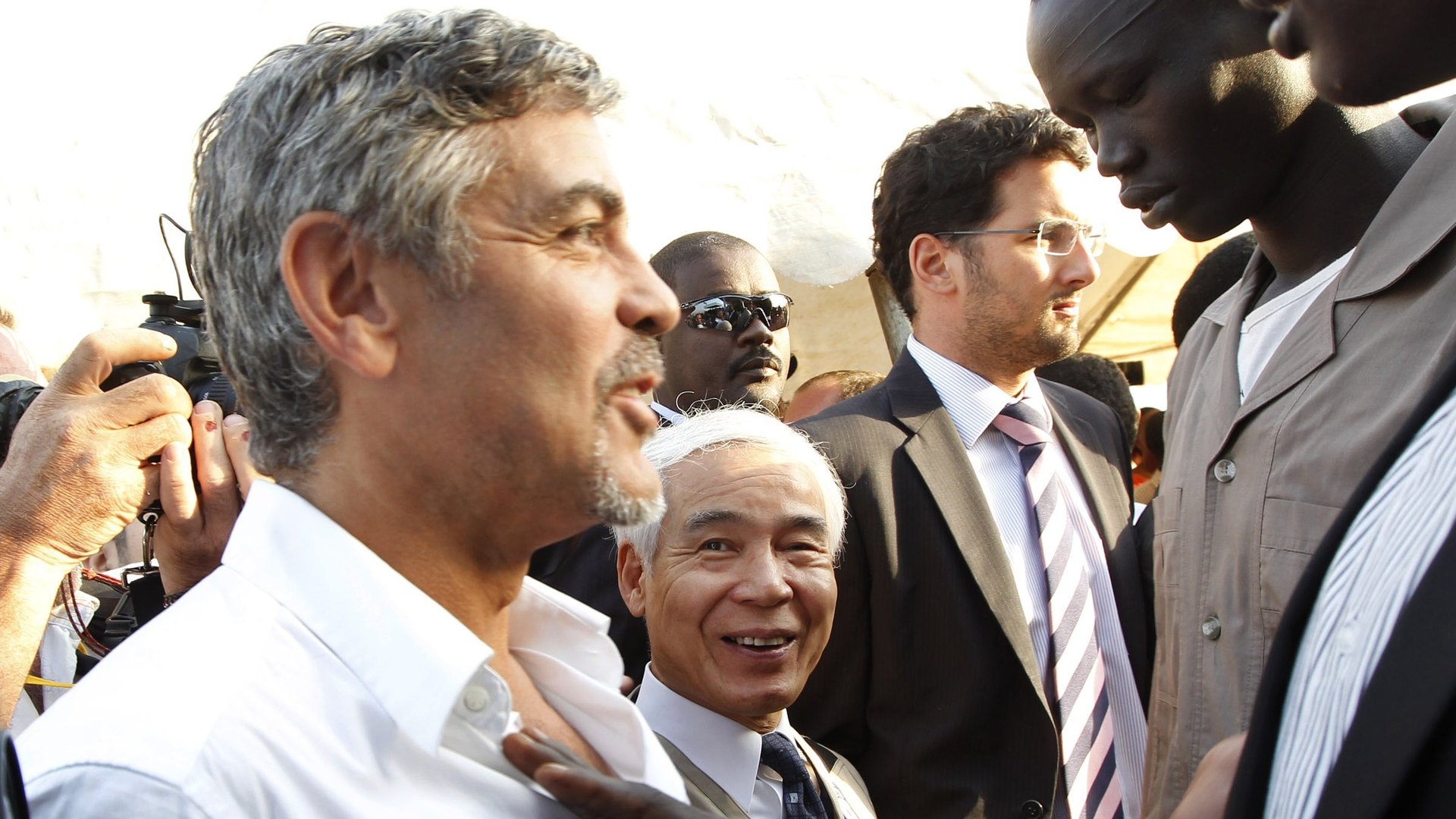George Clooney wants to expose people who finance Africa’s conflicts—but it won’t be easy
Seven years after attempting to bring global attention to human rights violations in Darfur, Hollywood star, George Clooney, now wants to use his star power for a new cause: exposing financiers and profiteers of war and conflict in Africa


Seven years after attempting to bring global attention to human rights violations in Darfur, Hollywood star, George Clooney, now wants to use his star power for a new cause: exposing financiers and profiteers of war and conflict in Africa
The award-winning actor–along with the US human rights activist John Prendergast–announced an ambitious project to investigate and expose the illegal flow of money in and out of conflict zones and clamp down on war profiteering on the African continent.
Clooney’s new project, The Sentry, will use data collection techniques, field research and analysis technology to expose how conflicts are financed and how profits are laundered–through a website that will crowdsource anonymous leaks and tips.
The Sentry will start by focussing four countries: Sudan, South Sudan, Somalia and the Central African Republic (CAR)–which have all experienced extreme levels of violence and financial and resource abuse by those in power–often political elites and, or military forces.
In a paper on Africa’s armed conflict burden, Jakkie Cilliers, executive director for the South African-based Institute for Security Studies argues that while African armed conflicts have been declining over the past decades–when measured in relation to population sizes and population growth–internal armed violence in African countries has been on the rise since 2010.
Cilliers argues that the internal armed conflicts have changed the nature of conflict with many state and non-state groups and armed-militias vying for illegitimate state power and clamouring for the control of financial resources.
A good example is the Séléka, an alliance of rebel militia groups in the Central African Republic (CAR) which seized control of diamond-producing areas, major transport routes and border crossings in western CAR, to prioritize the extraction and sale of diamonds in order to fund their activities.
Clooney has his work cut of for him. While celebrity activists like Clooney, Bob Geldof, Bono and Angelina Jolie have championed numerous causes over recent years, they’re often criticized for drawing far too much media attention on themselves, often overshadowing the people and the cause at hand.
A recent article published on The Conversation noted that celebrity activism can sometimes simplify complex challenges by proposing solutions which may work in the short-term, but are bound to fail if they’re not anchored in long-term policy changes, and don’t have the support of local stakeholders.
Celebrities undoubtedly help make causes known to a larger audience. They are often effective in obtaining pledges from governments, policymakers and businesses. The problem is that they are often much less effective in transforming these commitments into appropriate and effective policies.